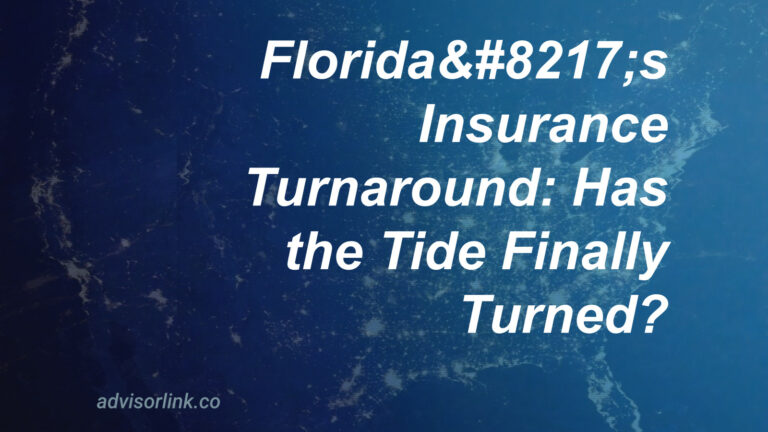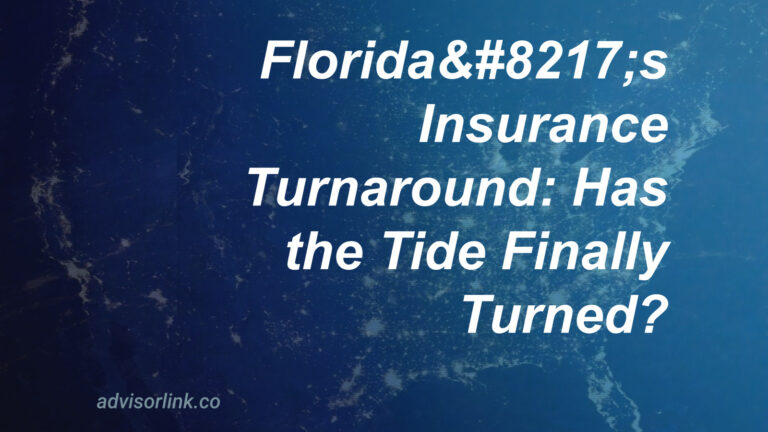“`
The news, my friends, often washes over us like a storm, leaving us battered and bruised. But sometimes, a ray of sunlight pierces the clouds. Take Maine, for instance. According to a recent report, the Pine Tree State has become a haven of sorts in the turbulent seas of home insurance. While much of the nation grapples with rising premiums and the fallout of climate change, Maine stands apart.
Is Maine’s Insurance Picture Really Rosy?
The numbers, they tell a story. Across the nation, the cost of protecting your home is on the rise. Up 9%, on average, the figures don’t lie. But in Maine? They tell a different tale. Rates *decreased* between 2023 and 2024. That’s right, a drop. This earned them a perfect score on the Home Insurance Climate Stability Index. That’s what I call news.
Is Geography the Key to Maine’s Fortunes?
Now, what accounts for this island of calm amidst the storm? Geography, plain and simple. Maine is shielded, protected by its location. The state is spared the wrath of tropical cyclones and wildfires that have become so familiar, so devastating, in other parts of our country. A lower risk profile, my friends, translates to greater stability.
How Does Maine Compare to Other States?
This relative tranquility doesn’t stand alone. Other New England states, like New Hampshire, Vermont, and Massachusetts, exhibit a similar steadiness. But Maine, with its second-lowest loss ratio nationwide, shows that the balance is being kept. Claims paid out aren’t exceeding premiums collected. That’s a healthy sign, a sign of a working system.
Are There Storm Clouds on the Horizon?
But let us not get carried away with ourselves. The future, as always, is uncertain. Experts caution that this stability is not guaranteed. The insurance companies, they often react after a disaster. Climate change, that slow-motion catastrophe, is a powerful force. We must keep a wary eye on its potential impact.
What’s Happening in the Rest of the Nation?
The U.S. property/casualty industry, as a whole, faced underwriting losses in 2024. This means they were paying out more than they were taking in. California, battling wildfires, is seeing policy cancellations and skyrocketing premiums. Florida, buffeted by hurricanes and burdened by litigation, faces its own set of challenges. [https://themainemonitor.org/home-insurance-stability/,https://www.cbsnews.com/news/fires-california-palisades-fire-homeowners-insurance-state-farm-fair-losses/,https://www.insurancejournal.com/date/2025-02-21/,https://www.bankrate.com/insurance/homeowners-insurance/florida-homeowners-insurance-crisis/,https://www.propertycasualty360.com/2025/02/12/around-the-pc-insurance-industry-february-12-2025/] It’s a challenging time.
What are Some Common Misunderstandings About Home Insurance?
Let’s clear up some misconceptions. Do not assume all states are the same. Insurance is a local game. Do not underestimate climate change, its impact is real. Know what your policy covers. Make sure you understand the fine print. And finally, do not be afraid to shop around. It’s your money, after all.
What Debates Surround the Insurance Industry?
The role of climate change, the fairness of risk assessments, and the affordability of insurance itself. These are the questions swirling around the industry. Where will it all lead?
The story of Maine is a reminder that even in troubled times, pockets of stability can be found. But it’s also a reminder that the forces reshaping our world, from climate change to the business of insurance, demand our attention. We must remain vigilant, informed, and ready for the road ahead. And that, my friends, is the truth of the matter.
“`
Disclaimer: General Information & Accuracy
This blog provides general information and discussions about insurance and related subjects for informational purposes only. It is not intended as professional advice, including but not limited to financial, legal, or medical advice. We strive for accuracy, but laws, regulations, information, and best practices constantly evolve, and unintentional errors can occur. Therefore, we make no warranties about the completeness, accuracy, reliability, or suitability of the blog content. Always consult with a qualified professional for advice tailored to your specific situation. Any reliance you place on this information is strictly at your own risk.






